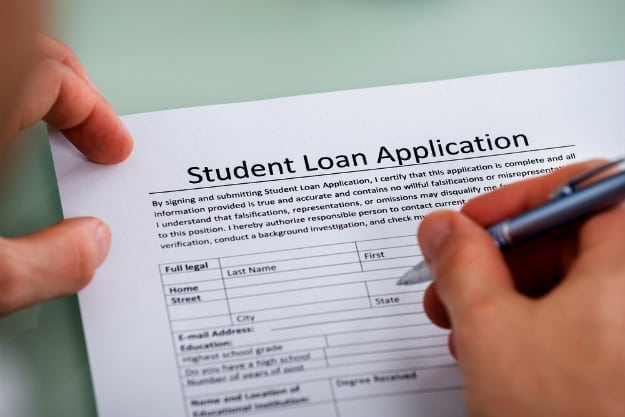A lot of people consider a student loan interest deduction as a heaven-sent student loan aid option.
Who doesn’t want to pay less taxes?
However, upon closer examination, a student loan interest deduction might not be as rewarding as it sounds.
Of course, it still helps a borrower’s financial situation — but at what cost?
Here’s what you need to know.
(Pro Tip: Want a bird’s eye view of all the options available for student loan repayment? Download the 8-Plan Cheat Sheet to Student Loan Repayment for free. Click here to learn more and grab your free copy).
How Does a Student Loan Interest Deduction Work?
What is a Student Loan Interest Deduction?
Under specific provisions by the IRS, a student loan borrower is eligible to deduct the interest paid on student loans from their taxes.
However, the conditions and qualifications for a student loan interest deduction vary among different cases.
In general, the eligibility of the loan, the civil status, and the modified adjusted gross income of the borrower are taken into consideration.
Also, this fixed maximum amount of deductible interest is $2,500.
However, even after accounting for all of that, the most important question is: How much does one save?
Which Loans Qualify?

Before you begin to compute how much you can save from student loan interest deductions, you need to make sure that the loans you took out qualify.
Only loans acquired through credible sources are eligible for student loan interest deduction.
Credible sources are legitimate institutions (such as banks) and the federal government.
Your lender cannot be a relative or an employer.
Moreover, the entire loan is supposed to have been used only to fund the cost of attendance and other related expenses of the borrower.
This means if the loans were used to fund other causes, such as for payment on a mortgage, the loan is not eligible.
(Note: Different types of loans qualify for different types of repayment plans… And making sure that you’re in the correct repayment plan can mean better benefits, lower payments, and averaged out lower interest rates (which means an easier repayment for you!) Download this free cheat sheet to repayment plans to make sure you are taking advantage of the best one for you. Learn more here.)
Who Can Qualify?

Only a certain range of modified adjusted gross income (MAGI) qualifies for student loan interest deduction.
For borrowers filing as single, the MAGI range you must have is ideally below $65,000, but can stretch up to $80,000.
For married borrowers filing jointly, the MAGI range is from $130,000 to $160,000.
In addition, only those who attended a reputable and qualified college or university are eligible to apply for the deduction.
The IRS has standards and qualifications for determining such schools.
How Much Can You Really Save?
To illustrate a case of student loan interest deduction, let us assume you are a borrower filing as single.
To obtain the maximum deduction, your income must be under $65, 000.
Using the computation method set by the IRS, the maximum amount of deduction per year is $625.
Keep in mind that this amount only becomes smaller as your income increases.
Considering the constraints that the deduction puts on one’s income (which has to fall within a range to qualify), you do not really save much with student loan interest deduction.
On the other hand, aiming for a higher income, which falls beyond the prescribed MAGI range, might speed up the process of repayment more effectively.
Watch this video from The Humanist Report for more information on student loan interest:
While the student loan interest deduction is undeniably helpful, it has its limitations. T
he specifics for qualifying for the deduction, albeit useful, might pale in comparison to a higher-paying job and a better repayment system.
However, it is best to keep oneself open to options like this.
Any student loan aid is a step towards a debt-free life!
What are your thoughts on the student loan interest deduction? Let us know in the comments below.
Up Next: Income-Based Repayment Plan


Leave a Reply